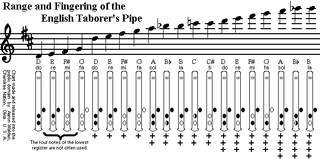Stamina may refer to:
Stamina may refer to:
Redundancy or redundant may refer to:

In the sport of association football, a defender is an outfield player whose primary role is to stop attacks during the game and prevent the opposition from scoring.

In the sport of association football, each of the 11 players on a team is assigned to a particular position on the field of play. A team is made up of one goalkeeper and ten outfield players who fill various defensive, midfield, and attacking positions depending on the formation deployed. These positions describe both the player's main role and their area of operation on the pitch.

Endurance is the ability of an organism to exert itself and remain active for a long period of time, as well as its ability to resist, withstand, recover from and have immunity to trauma, wounds, or fatigue.
FG, fg, or Fg may refer to:

G.I. Joe: A Real American Hero is a 1991 run and gun game published by Taxan for the Nintendo Entertainment System based on the toyline of the same name. The game was produced by Ken Lobb and developed by the same Japanese team that later formed KID. A sequel developed by the same team, titled G.I. Joe: The Atlantis Factor, was released the following year, but was published by Capcom after Taxan went out of business.

Star Wars: The New Droid Army is a 2002 action video game developed by Helixe and published by THQ for the Game Boy Advance. The game features Anakin Skywalker prior to his fall to the dark side and transformation into Darth Vader in Revenge of the Sith.

An attribute is a piece of data that describes to what extent a fictional character in a role-playing game possesses a specific natural, in-born characteristic common to all characters in the game. That piece of data is usually an abstract number or, in some cases, a set of dice. Some games use different terms to refer to an attribute, such as statistic, (primary) characteristic or ability. A number of role-playing games like Fate do not use attributes at all.
In the Dungeons & Dragons role-playing game, game mechanics and dice rolls determine much of what happens. These mechanics include:
Physique may refer to:
Athletics may refer to:

Musical technique is the ability of instrumental and vocal musicians to exert optimal control of their instruments or vocal cords in order to produce the precise musical effects they desire. Improving one's technique generally entails practicing exercises that improve one's muscular sensitivity and agility. Technique is independent of musicality. Compositional technique is the ability and knowledge composers use to create music, and may be distinguished from instrumental or performance technique, which in classical music is used to realize compositions, but may also be used in musical improvisation. Extended techniques are distinguished from more simple and more common techniques. Musical technique may also be distinguished from music theory, in that performance is a practical matter, but study of music theory is often used to understand better and to improve techniques. Techniques such as intonation or timbre, articulation, and musical phrasing are nearly universal to all instruments.

Thoroughbred breeding theories, or racehorse theories, are used by horse breeders in an attempt to arrange matings that produce progeny successful in horse racing. Bloodstock experts also rely on these theories when purchasing young horses or breeding stock. A basic understanding of these theories can also help the racing public understand a horse's theoretical genetic potential. The breeding theories stem from the belief that careful analysis of bloodlines can lend predictability to breeding outcomes. A well-designed mating increases the probability of the offspring's success, although many other factors also come into play.
The Treeing Cur is a breed of dog that originated in the mid-west of the United States. It was first recognized by United Kennel Club on November 1, 1998, due to the efforts of Alex and Ray Kovac. "Most Cur breeders were not well off and so they required a dog that could serve multiple purposes: hunter, guardian, and stock dog. The result was the Treeing Cur, which is the most varied in size and colors of the Cur breeds", according to United Kennel Club. They are primarily used to tree squirrels, raccoons, opossum, wild boar, bears, mountain lion, bobcat as well as to hunt big game.

The Banjara Hound, also known as the Vanjari Hound, is a breed of dog found in India. It is a sighthound-type dog bred and used for hunting by the nomadic Banjara of Maharashtra. The Banjara Hound is a rough-coated breed of sighthound, usually brindle or solid-coloured. It resembles a large Saluki, standing around 28 in (71 cm), and is famed for its stamina and ability to pull down deer.

Inhibitory control, also known as response inhibition, is a cognitive process – and, more specifically, an executive function – that permits an individual to inhibit their impulses and natural, habitual, or dominant behavioral responses to stimuli in order to select a more appropriate behavior that is consistent with completing their goals. Self-control is an important aspect of inhibitory control. For example, successfully suppressing the natural behavioral response to eat cake when one is craving it while dieting requires the use of inhibitory control.
Slab suction is one of the four main forces that drive plate tectonics. It creates a force that pulls down plates as they are subducting and speeds up their movement, creating larger amounts of displacement.
To be energetic is to possess, exert, or display the ability to do physical work.

Dance Dance Revolution Dance Wars, stylized Dance Dance Revolution DANCE WARS and sometimes abbreviated as DDR Dance Wars, is the most recent home release of Dance Dance Revolution, and the third one to be released in iOS. The game stopped functioning at September 1, 2013 due to the team retiring from online.

Delta Force: America Strikes Back! is a role-playing game published by Task Force Games in 1986.